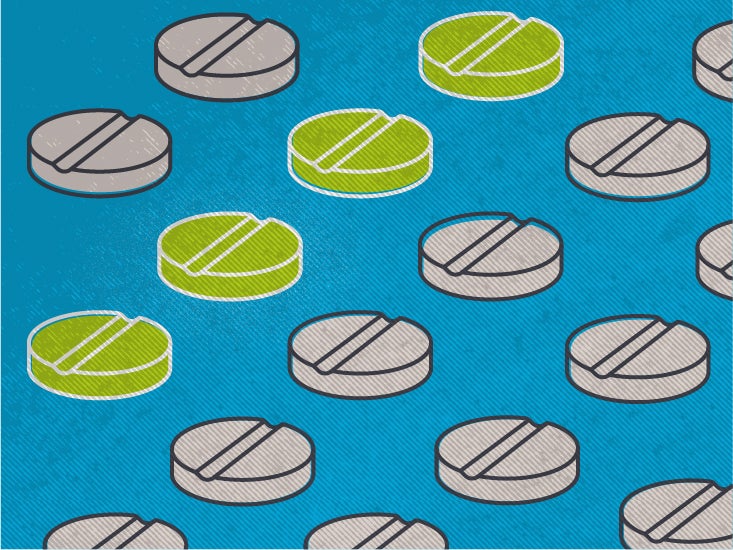Budesonide ER oral tablets: Side effects, dosage, and more - Medical News Today

Here are answers to some frequently asked questions about budesonide ER oral tablets.
Is budesonide used for COVID-19?
Budesonide ER oral tablets are not currently approved to treat COVID-19. But other forms of budesonide have been used off-label for this purpose. (Off-label means taking a drug for a purpose other than its FDA-approved use.)
For example, a
If you have questions about taking budesonide for COVID-19, talk with your doctor.
Does budesonide treat asthma or COPD? What's the dosage for these conditions?
No, budesonide ER oral tablets are not currently approved to treat asthma or chronic obstructive pulmonary disease (COPD).
But the following forms of budesonide are approved to treat asthma:
- dry powder inhaler
- liquid solution that's used with a nebulizer
Doctors may prescribe the inhaled and solution forms of budesonide off-label to treat COPD. (Off-label means taking a drug for a purpose other than its FDA-approved use.)
If you have questions about taking budesonide for asthma and COPD, including the dosages for each condition, talk with your doctor.
What should I know about budesonide vs. albuterol, fluticasone, Brovana, and formoterol?
Budesonide ER oral tablets are a corticosteroid approved to treat ulcerative colitis. But other forms of budesonide are approved to treat other conditions.
For example, the following forms of budesonide are approved to treat asthma:
- dry powder inhaler
- liquid solution that's used with a nebulizer
Like these forms of budesonide, the corticosteroid fluticasone (Flovent HFA) is used to treat asthma.
In addition, the following drugs (which belong to a group of medications called beta-agonists) may be used to treat asthma or COPD:
Albuterol is a rescue inhaler. A rescue inhaler reduces symptoms of an asthma attack, such as shortness of breath. Arformoterol and formoterol are not rescue inhalers. They're taken to prevent an asthma attack from happening.
For more details about how budesonide compares with albuterol, fluticasone, Brovana, and formoterol, talk with your doctor or pharmacist.
Is budesonide used for microscopic colitis, lymphocytic colitis, or eosinophilic esophagitis?
Budesonide isn't currently approved to treat microscopic colitis, lymphocytic colitis,* or eosinophilic esophagitis. However, budesonide may be used off-label for microscopic colitis or lymphocytic colitis. (Off-label means taking a drug for a purpose other than its FDA-approved use.)
A budesonide slurry may be used off-label for eosinophilic esophagitis. (For details on this form of budesonide, see "What's a budesonide slurry?" directly below.)
If you have questions about taking budesonide for these purposes, talk with your doctor.
* Lymphocytic colitis is a type of swelling in the colon caused by a buildup of white blood cells.
What's a budesonide slurry? Are there side effects from taking the slurry?
Budesonide slurry is a form of budesonide that's used off-label to treat eosinophilic esophagitis. A slurry is needed because the esophagus becomes severely swollen with eosinophilic esophagitis. This makes it difficult to swallow tablets.
The slurry is made using the liquid solution form of budesonide. The liquid is mixed with a sweetener, such as sucralose. The liquid mixture is then swallowed instead of being used with a nebulizer (which is how the solution is typically used).
You should not use budesonide ER oral tablets to make a slurry. These tablets should not be crushed.
Specific side effects of budesonide slurry haven't been reported. But side effects have been reported for other corticosteroids that are applied to the esophagus. The most common side effect of these drugs is esophageal thrush (a fungal infection on the esophagus).
If you have questions about taking a budesonide slurry, talk with your doctor.
Will I have weight gain with budesonide?
It's possible. Weight gain wasn't a side effect reported in clinical studies of budesonide ER oral tablets. But weight gain is a common side effect of corticosteroids. (Budesonide is a corticosteroid.)
Keep in mind that budesonide can also cause swelling in your arms and legs. And this swelling can cause weight gain.
If you're concerned about weight gain while taking budesonide ER oral tablets, talk with your doctor. They can suggest ways to manage your weight during your treatment.
Comments
Post a Comment